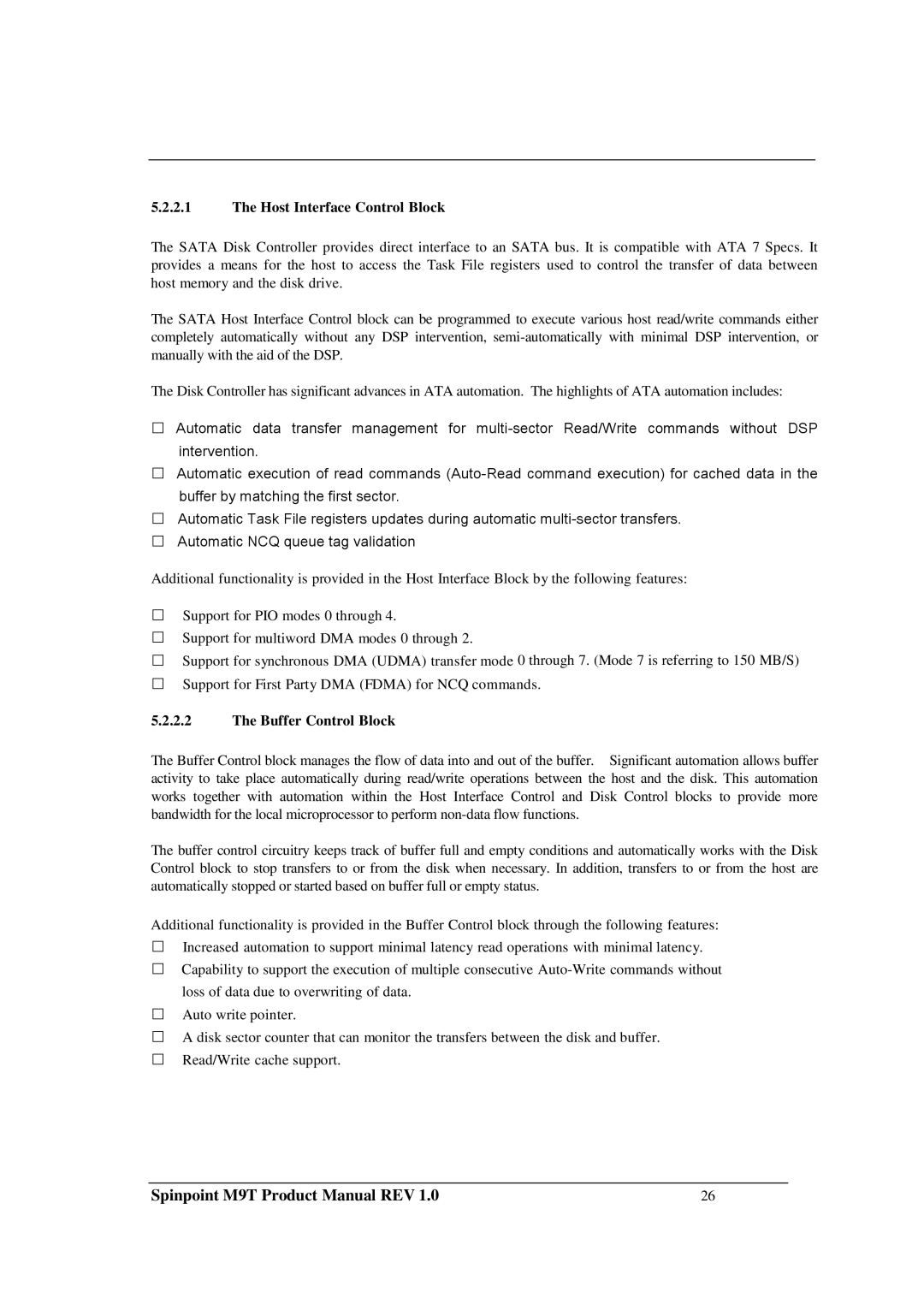5.2.2.1The Host Interface Control Block
The SATA Disk Controller provides direct interface to an SATA bus. It is compatible with ATA 7 Specs. It provides a means for the host to access the Task File registers used to control the transfer of data between host memory and the disk drive.
The SATA Host Interface Control block can be programmed to execute various host read/write commands either completely automatically without any DSP intervention,
The Disk Controller has significant advances in ATA automation. The highlights of ATA automation includes:
Automatic data transfer management for
Automatic execution of read commands
Automatic Task File registers updates during automatic
Automatic NCQ queue tag validation
Additional functionality is provided in the Host Interface Block by the following features:
Support for PIO modes 0 through 4.
Support for multiword DMA modes 0 through 2.
Support for synchronous DMA (UDMA) transfer mode 0 through 7. (Mode 7 is referring to 150 MB/S)
Support for First Party DMA (FDMA) for NCQ commands.
5.2.2.2The Buffer Control Block
The Buffer Control block manages the flow of data into and out of the buffer. Significant automation allows buffer activity to take place automatically during read/write operations between the host and the disk. This automation works together with automation within the Host Interface Control and Disk Control blocks to provide more bandwidth for the local microprocessor to perform
The buffer control circuitry keeps track of buffer full and empty conditions and automatically works with the Disk Control block to stop transfers to or from the disk when necessary. In addition, transfers to or from the host are automatically stopped or started based on buffer full or empty status.
Additional functionality is provided in the Buffer Control block through the following features:
Increased automation to support minimal latency read operations with minimal latency.
Capability to support the execution of multiple consecutive
Auto write pointer.
A disk sector counter that can monitor the transfers between the disk and buffer.
Read/Write cache support.
Spinpoint M9T Product Manual REV 1.0 | 26 |
